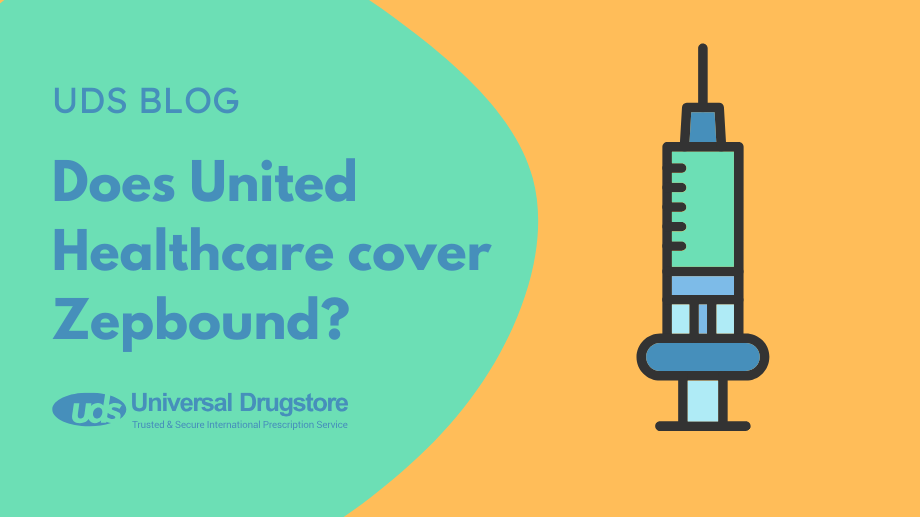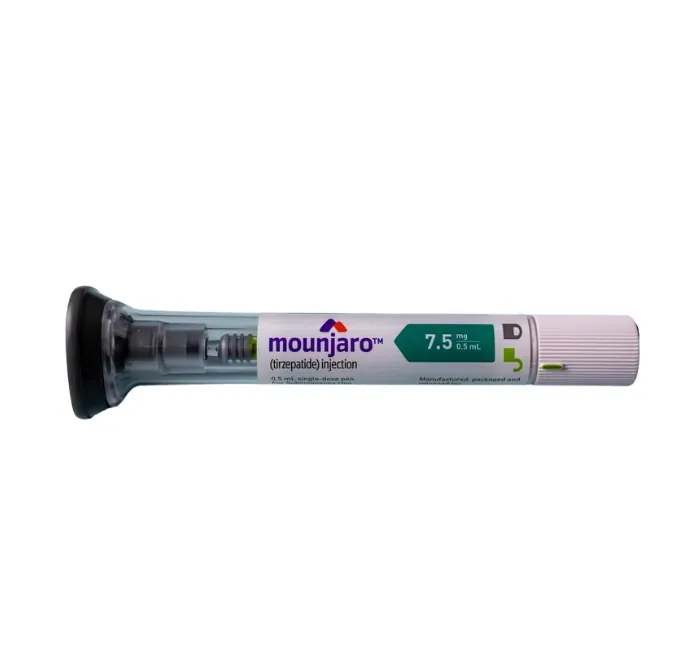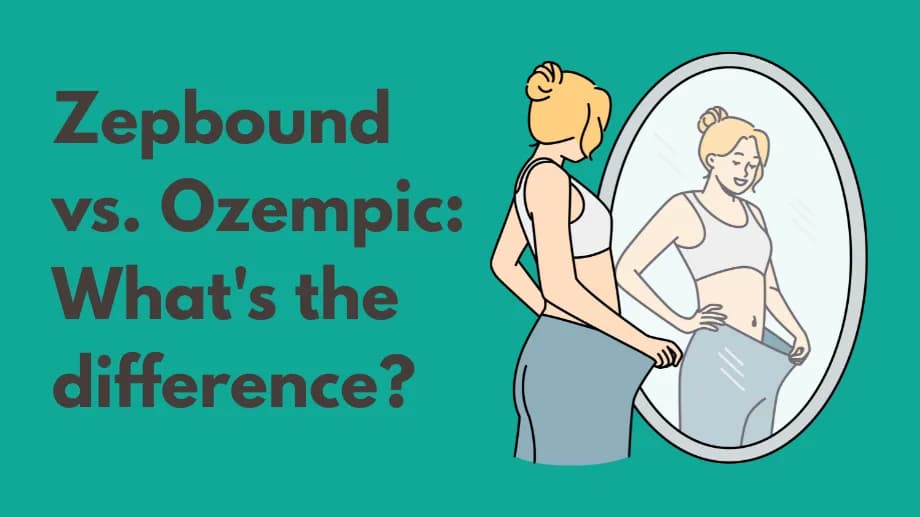Does United Healthcare cover Zepbound?

Understanding your health insurance coverage can be confusing, especially when it comes to new prescription medications such as Zepbound (tirzepatide). With so many different health insurance companies on the market, it can be hard to figure out what is covered and what is not covered. One common question asked by those wanting to try Zepbound is whether or not United Healthcare (UHC) covers this new weight loss medication.
According to their website, UHC will cover Zepbound starting March 1, 2024. This is great news for those suffering from obesity who have not been able to get their weight under control. The price you will pay for Zepbound with your UHC plan can vary significantly, depending on your specific pharmacy benefits and your plan details, like copays, deductibles, and maximum out-of-pocket expenses.
It may also depend on other specifics such as:
- Type of insurance plan: Plans such as PPOs (Preferred Provider Organizations) and HMOs (Health Maintenance Organizations) have different rules and requirements, which can affect your coverage. Depending on your plan, certain medications may not be covered or can require prior authorization (sometimes referred to as precertification) if similar alternative medications are available at a lower cost. Some plans may also require what is called Step Therapy and may require you to try one or more other drugs before Zepbound may be covered.
- Prescription drug list (PDL): Also called a formulary, this is a list of commonly used medications that your plan will cover. The costs of these drugs are decided by your employer or health plan.
- What state you live in: There may be different benefits based on the state you live in. You can visit their website to see the specific plan for your state, including New Jersey, California, New York, and Connecticut.
You can sign into myuhc.com or call the number on your health plan ID card to see your specific PDL and get more information about your prescription drug benefit plan, exclusions, cost-share, or out-of-pocket costs.
Zepbound FAQs
What is Zepbound used for?
Zepbound (tirzepatide) is a glucagon-like peptide-1 (GLP-1) and glucose-dependent insulinotropic polypeptide (GIP) receptor agonist that is FDA-approved along with increased physical activity and a reduced-calorie diet for chronic weight management in adults with a starting body mass index (BMI) of:
- 30 kg/m^2 or higher (obesity) or
- 27 kg/m^2 or higher (overweight) with at least one weight-related condition such as high cholesterol, high blood pressure (hypertension), type 2 diabetes, heart disease, or obstructive sleep apnea.
The safety and effectiveness of Zepbound have not been established in pediatric patients under the age of 18.
How does Zepbound work?
The active ingredient in Zepbound is tirzepatide, a GIP and GLP-1 receptor agonist. Zepbound works by acting like GLP-1 and GIP, 2 hormones released in your gut that are involved in the regulation of blood sugar and appetite. GLP-1 and GIP target areas in your brain to help decrease appetite and slow down digestion to help you feel full faster and longer. This can help you eat less and is what makes Zepbound an effective weight loss medication. They also stimulate your pancreas to release insulin, which reduces your blood sugar levels.
What are the side effects of Zepbound?
The most common side effects of Zepbound in clinical trials when compared to placebo include:
- Nausea
- Diarrhea
- Vomiting
- Indigestion
- Constipation
Some other possible side effects of Zepbound include:
- Burping
- Fatigue
- Stomach pain
- Hair loss
- Injection site reactions
- Dizziness
Zepbound may also cause more serious side effects including:
- Serious allergic reactions, including:
- Hives
- Swelling of your throat and tongue
- Trouble breathing
- Increased risk of thyroid cancer or thyroid tumors.
- Pancreatitis (inflammation of your pancreas).
- Kidney damage including kidney failure.
- Gallbladder problems including gallstones.
- Hypoglycemia (dangerously low blood sugar).
- Vision changes in people with type 2 diabetes (diabetic retinopathy).
- Worsening depression or suicidal thoughts.
Shop Medications
Disclaimer: These are not all of the possible adverse events of Zepbound. You should always seek medical advice from a healthcare professional for any questions or concerns about your medical condition or treatment. You should also read all the patient information, including your Medication Guide that comes with Zepbound. You can report side effects to the FDA at 1-800-FDA-1088 or www.fda.gov/medwatch.
Are there Boxed Warnings with Zepbound?
The Food and Drug Administration (FDA) recommends people who have a personal or family history of medullary thyroid cancer (MTC) should not use Zepbound along with people with Multiple Endocrine Neoplasia syndrome type 2 (MEN 2). You should also avoid this medication if you are allergic to tirzepatide or any inactive ingredient in this product.
What precautions are there with Zepbound?
You should be sure your healthcare provider is aware of all your medical problems as they may be contraindications or you may need increased monitoring during treatment, including if you:
- Currently have or have a history of kidney or pancreas problems.
- Have severe stomach problems such as slowed emptying of your stomach (gastroparesis) or problems with digesting food.
- Currently have or have a history of diabetic retinopathy.
- Are pregnant or plan on becoming pregnant.
- Are breastfeeding or plan on breastfeeding.
Oral birth control pills may not work as well if you take Zepbound. Use another type of birth control for 4 weeks after starting and after each dose increase.
What drug interactions are there with Zepbound?
When Zepbound is taken with other prescription drugs, over-the-counter medications, vitamins, herbal products, and supplements, it may change how they work or increase the risk of side effects. Be sure to tell your healthcare provider about all your current medications, including:
- Other medications that can lower your blood sugar such as insulin.
- Oral medications, since Zepbound slows down digestion and can change how much these medications are absorbed.
How should you use Zepbound?
Be sure to read the Instructions for Use before starting Zepbound. Use it exactly as your healthcare provider prescribes it to you.
Zepbound is injected subcutaneously (under the skin) once a week in the stomach, thigh, or back of the upper arm. The injection day can be changed with at least 3 days between doses.
If you miss a dose, inject within 4 days. If more than 4 days have passed, skip the missed dose and take the next one as scheduled. Do not take 2 doses within 3 days.
Rotate injection sites with each injection within the same area of the body.
Does Medicare cover Wegovy, Zepbound, and other weight-loss medications?
Medicare is currently not allowed to cover weight-loss drugs such as Zepbound. If the medications are approved for another purpose, such as type 2 diabetes, they may be covered. Medicare may cover certain bariatric surgeries. Check with your plan for specifics.
Related Medications
- Mounjaro (tirzepatide)
- Wegovy (semaglutide)
- Ozempic (semaglutide)
- Rybelsus (semaglutide)
- Trulicity (dulaglutide)
- Victoza (liraglutide)
- Saxenda (liraglutide)
- Contrave (naltrexone HCl and bupropion HCl)
- Qsymia (phentermine and topiramate extended-release)
- Xelstrym (dextroamphetamine)
Sources
- Medscape
- Zepbound Prescribing Information
- Zepbound Medication Guide
- Eli Lilly
- Centers for Disease Control and Prevention (2022). Health effects of overweight and obesity.
- UnitedHealthcare PDL











